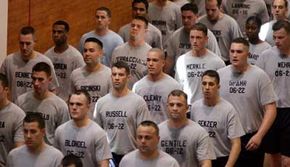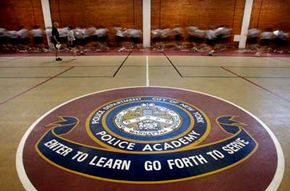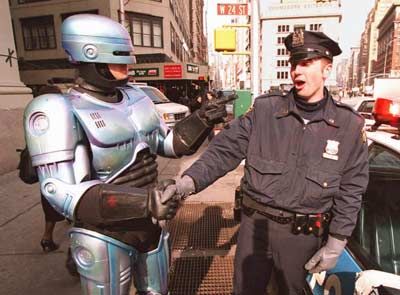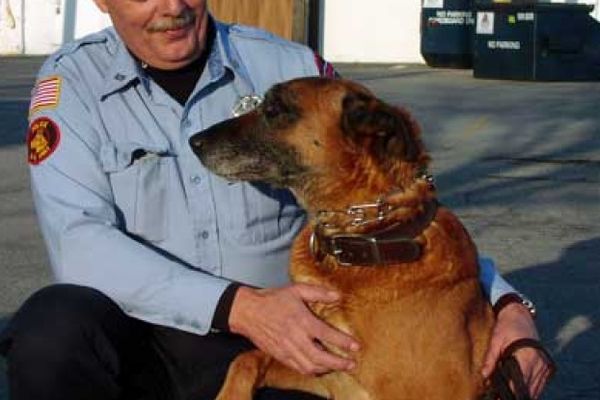If one thing separates police recruits from full-fledged officers, it's pepper spray. On-duty officers keep a can handy in case of unruly criminals, but recruits in police academies have to stand still and a take a burning spritz in the face.
Pepper spray training is just one of the physically and mentally demanding exercises that thousands of men and women in police academies go through in pursuit of the blue uniform.
Advertisement
Before police academies were developed in the United States in the early 20th century, an officer's training took place on the streets. Aside from following the law, police learned by trial and error from the different encounters they came across. Now, every police officer in the nation goes through a formalized certification course at a police academy.
Police academies are similar to basic training programs in the military. Recruits, people in training to become police officers, may live in dormitories for six to eight months, waking up at 5 a.m. and turning the lights out at 10 p.m. sharp. After a day of intense physical training and academic classes, they eat dinner and settle down for a few hours of studying before heading to bed.
Even in non-residential academies where recruits go home in the evenings, training is focused and regimented. After all, the basic program is an average of 720 course hours [source: Bureau of Justice Statistics].
Recruits' appearances are held to strict standards -- close-cropped hair for the men, as well as shined shoes and military fatigues. Women cannot wear cosmetics, jewelry or visible hair accessories. Personal conduct at the academy is also highly scrutinized to prepare recruits for the rigors of law enforcement. Following six to eight months of this severe lifestyle, depending on the program length, the recruits become certified police officers.
But what exactly happens inside these hundreds of police academies across the United States, and how do they compare with police training across the world? Read on to find out.
Advertisement





